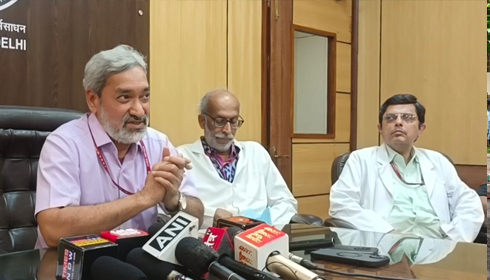
AIIMS Experts Address Widespread Misconceptions and Challenges Faced by Vitiligo Patients
Renowned dermatologists from the All India Institute of Medical Sciences (AIIMS), Delhi, have highlighted the pervasive discrimination faced by patients with vitiligo, a skin condition characterized by white patches. According to the doctors, the condition not only affects physical appearance but also significantly impacts the social and emotional well-being of those affected.
Dr Kanika Sahni, Additional Professor, Department of Dermatology, AIIMS, reported a poignant case from the AIIMS outpatient department (OPD), where a patient expressed reluctance to attend family events due to fear of judgment and misinformation about vitiligo. The patient was concerned that relatives would see the condition as hereditary and assume it could affect future generations, thereby stigmatising their family.
Prof Kaushal Kishore Verma, Head of the Department of Dermatology at AIIMS, emphasised the critical need for public awareness.
He noted that many patients come to AIIMS after spending substantial amounts on alternative treatments, driven by misconceptions about the disease. A prevalent myth is that vitiligo is akin to leprosy and that it cannot be managed or cured. Another widespread but false belief is that consuming fish and milk together causes vitiligo.
Prof. Verma explained that vitiligo is an autoimmune disorder in which the body’s immune system mistakenly attacks pigment-producing cells. Despite these misconceptions, he assured that modern treatments available at AIIMS can manage the condition effectively.
Dr. Sujay Khandpur, also from the Department of Dermatology, highlighted the unpredictable nature of vitiligo treatment. Recovery times can vary greatly, with some patients seeing improvement within days, while others may experience a prolonged course of treatment.
The AIIMS dermatologists’ insights underline the urgent need to address the myths surrounding vitiligo and improve societal understanding to better support those living with the condition.